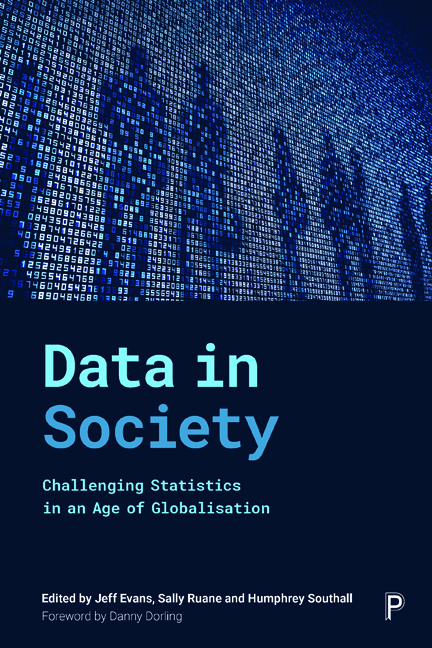Book contents
- Frontmatter
- Contents
- List of figures, tables and boxes
- Notes on contributors
- Foreword
- Preface
- General introduction
- Part I How data are changing
- Part II Counting in a globalised world
- Part III Statistics and the changing role of the state
- Part IV Economic life
- Part V Inequalities in health and wellbeing
- Part VI Advancing social progress through critical statistical literacy
- Epilogue: progressive ways ahead
- Index
18 - Tax and spend decisions: did austerity improve financial numeracy and literacy?
Published online by Cambridge University Press: 30 April 2022
- Frontmatter
- Contents
- List of figures, tables and boxes
- Notes on contributors
- Foreword
- Preface
- General introduction
- Part I How data are changing
- Part II Counting in a globalised world
- Part III Statistics and the changing role of the state
- Part IV Economic life
- Part V Inequalities in health and wellbeing
- Part VI Advancing social progress through critical statistical literacy
- Epilogue: progressive ways ahead
- Index
Summary
Introduction
This chapter asks if austerity has had an upside: whether it has focused public attention on the political arithmetic of taxation and spending and so has been educative, maybe even improving public understanding of numbers and finance. As resources got scarcer, should more attention have been paid to how money is raised, expended and accounted for? Austerity was an opportunity, for both its advocates and opponents. This chapter asks whether this opportunity was exploited. That means asking about the state's own performance in collecting and assessing fiscal data and ensuring it is widely disseminated and understood by citizens, preconditions for a better informed public financial conversation.
In the background we note that taxation antedates democracy but has been a spur and precondition for popular participation in government. Democratic debate is, in considerable measure, fiscal conversation. Garnering enough revenue to pay for public services, let alone redistributing it between classes of citizens, are chronic challenges and perennial topics of political disagreement. Paying tax means counting; democracy and numeracy should be allies. Taxpayers need to be numerate and possess basic financial literacy, even when most income tax is deducted at source. If public financial literacy is weak, democracy suffers because people will not understand what the state is doing in their name, and with their money.
In the UK, in response to the financial crash of 2008, political debate raged around ‘affordability’, the size of the state and the distributional consequences of tax and spend decisions. Was this an instance of learning? Were data supplied; did the public attend? That prompts another question. Do improvements in financial literacy lead to support for higher levels of tax and spend or, conceivably, the obverse? Is it the case that the more we know about how the state performs, the less readily we assent to taxation? Or might progressive political possibilities be cramped and confined if the public don't understand, or wilfully misread, the numbers for state debt, tax take and redistribution? On both right and left, commitment to improving public numeracy, and specifically public understanding of public finance, has never been great. Is the cynical observation in order that better understanding might cramp political possibility? Conservative, coalition and Labour governments have been tempted by ‘stealth’ in their fiscal decision making, albeit for different reasons.
- Type
- Chapter
- Information
- Data in SocietyChallenging Statistics in an Age of Globalisation, pp. 237 - 246Publisher: Bristol University PressPrint publication year: 2019



